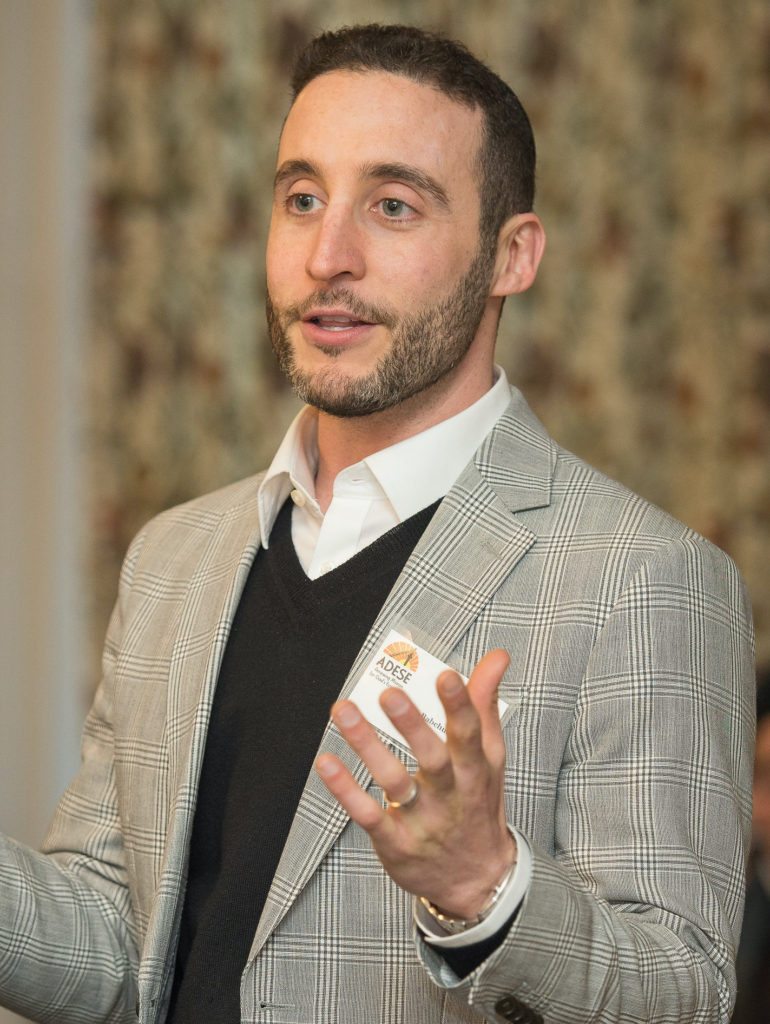I guess that – maybe – in my frantic preparations to pack for the five-day mindfulness retreat, I may have missed the instructions. I knew to bring loose clothing for yoga, comfy outfits for long stretches of sitting meditations, and plenty of paper to write down my reflections along the way. I knew to bring an appetite to engage in new practices, to be ready to come out of my comfort zone, and that – despite the relaxing allure – the days would be end-to-end, filled with hard work.
So when I sat down for the opening session and looked down at the agenda in front of me, I mentally checked off all the activities ahead that I knew to expect. Yoga? Check. Meditation? Check. Study? Check. 18 hours per day in silence? Not so much…
Somehow I had missed the note about silence in the description of the retreat, and all of a sudden I felt completely unprepared for the days ahead. How would I connect home? How would I process my experiences? If the meals are bland, how would I ask people to pass the salt?
Day 1
Five minutes into it, I get it. I totally get it. The silence is beautiful. The birds outside are cooperating nicely and chirping a magnificent backdrop for our first moments of silence. I’m steadily approaching Bliss.
Ten minutes in, I’ve achieved Nirvana. I am pure consciousness. This is what it’s all about, folks. I peek around the room, wondering if my fellow participants have joined me on this new, higher level of being. A thought creeps into my head: It could get lonely up here.
Twelve minutes in, I start thinking about my kids. Then my wife. Then work. Then work some more.
Seventeen minutes in: When’s lunch?
Day 2
Leading up to the silence, I become intensely anxious. I spend the first 20 minutes of silence watching my mind race back and forth between things I have to do back home and reasons why a silent retreat isn’t right for me. When my mind finally exhausts itself, I enter into a true silence, and observe what happens.
My shoulders start to relax from their perpetual tightness. My breath slows down, and my heart rate follows suit. It only lasts for a few precious moments, but precious they are.
Days 3 through 5
Follow this trajectory as I slowly give myself up to the silence, and observe – happily – the results. When we come out of silence for the final time and circle around for the closing session, I assign myself some homework. In addition to the regular meditation practice that is a required part of this program, I also push myself to experience more moments of silence. So – in silence – I write out my challenges:
- Spend the first 15 minutes at work without talking. What do you hear?
- Every day, walk around the block once or twice without talking. Resist the urge to multitask and make a phone call by leaving your phone behind.
- Next time you’re in a coffee shop or restaurant by yourself, try eating or drinking without talking to anyone, and without relying on your phone for entertainment. Does the coffee taste different? Does the food?
- In the car, try turning off the radio and driving in silence. What thoughts come to mind?
I don’t know what I will discover in the silence to come, but – after surprising myself by surviving five days of it – I’m eager to find out.

Rabbi Elan Babchuck is committed to leaving behind a world that is more compassionate and connected than the one he found. In pursuit of that commitment he serves as the Executive Vice President at Clal, the National Jewish Center for Learning and Leadership, and the Founding Executive Director of Glean Network, which partners with Columbia Business School. He was ordained in 2012, and earned his MBA that year, as well.
A sought-after thought leader, he has delivered keynotes at stages ranging from TEDx to the US Army’s General Officer Convocation, published in The Atlantic, The Guardian, Washington Post, and Religion News Service, has a column for The Wisdom Daily, contributed to Meaning Making – 8 Values That Drive America’s Newest Generations (2020, St. Mary’s Press) and is the co-author of the forthcoming book Picking Up the Pieces: Leadership After Empire (2023, Fortress Press).
He also serves as:
a Founding Partner of Starts With Us, a movement to counteract toxic polarization in America,
a Research Advisory Board Member of Springtide Research Institute, which focuses on spirituality, mental health and Gen Z,
a founding board member of Beloved Network, a network of startup Jewish communities, and
a member of the Board of Advisors of the Changemaker Initiative.
He lives in Providence, Rhode Island with his wife, Lizzie Pollock, and their three children: Micah, Nessa, and Ayla. In his spare time, he finds sanctuary while climbing rock walls around New England and tending to his backyard garden.

